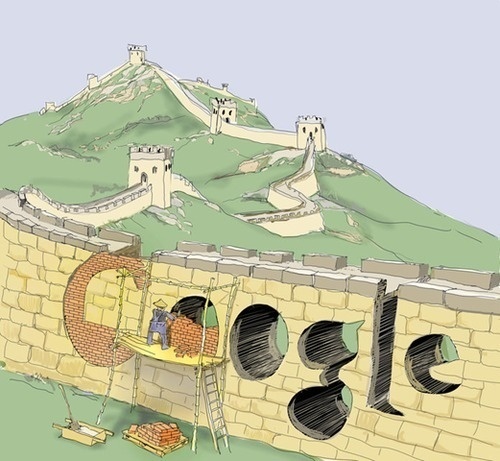
A few months ago, in a land far far away, a corporate empire was locked in a heated battle over the freedom of the minds of the middle kingdom with the Chinese Rebel Army.
Ho ho!
But no really, on a more serious note.
Google entered the Chinese market in 2005 with its own specific .cn domain name to service the Chinese market of 2968 million, almost more than the entire US population. Before the google .cn domain was available, Chinese internet users had access to the American google.com domain, however most of its content was unavailable due to censorship.
To remedy this situation, Google made a deal with the devil and compromised on its "don't be evil" motto and replaced it with a "there is an evil scale, allowing smaller evils for a greater good"

So this all went nice and swell for the next of couple of years, and google settled on a 30% market share of the Chinese market against competitor Baidu.com
....until..
China pushed too hard!!
The Chinese government got caught with their pants down and their hands in the cookie jar,attempting to hack into the Google gmail accounts of human rights activists.
After a maelstrom of controversy from all sides and speculation for months Google pulled the plug on its censors on google.cn and redirected all traffic to its google,hk.com website.
So the big question is, what does this mean to e-commerce world?

Well for starters, if or when the Chinese government decides to ban google, from operating in China, it will send a chilly message to other western companies operating in China, that China is may not be a safe place to invest in despite its huge potential. This is cherry on top with, other popular websites such as Facebook, Twitter and Youtube already being blocked.
With an internet user market that is predicted to outstrip the American internet market in the near future, the Chinese market does present itself as having huge potential for revenue and will likely change the face of the internet in the future.
No comments:
Post a Comment